MANAGUA, Nicaragua — Inside a bustling workshop in one of the nation’s most prestigious vocational education and training centers, aspiring technical students carefully navigate metal pliers to repair a colorful array of yellow, green, black and red wiring on an electrical panel board.
“Technical careers have a lot of demand–not just in Nicaragua–but around the world,” says Osmin Manuel Mendez, who is studying industrial electricity and motor control at Fundación Victoria.
The hands-on classroom at Fundación Victoria is filled with students from Nicaragua’s Caribbean Coast—part of a select group of scholarship recipients through the Technical Vocational Education and Training Strengthening for At-risk Youth project, known in Spanish as “Aprendo y Emprendo.”
The project is supporting youth from ethnic minorities to develop skills for work and life by enrolling them in technical training followed by internships with potential employers or support to start their own small business. It is funded by the U.S. Agency for International Development and implemented by Creative Associates International.
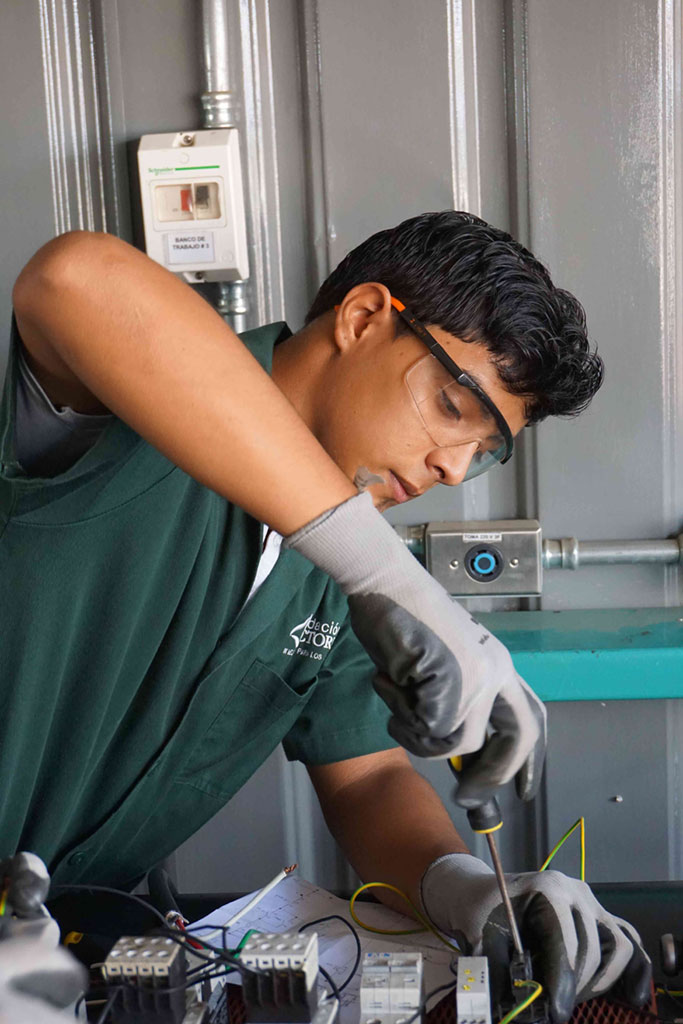
Hailing from the Caribbean Coast more than 200 miles from Managua, Diego Armando Soza Mairena from El Rama, Igor Leonard Collins Sanchez from Corn Island, and Osmin Manuel Mendez from Bluefields are three of 11 scholarship recipients through Aprendo y Emprendo, studying at the competitive Fundacion Victoria.
Making their mark, they are the first group of students from the Caribbean Coast to study at the center in Nicaragua’s capital city.
“I want to break the stereotypes about people from El Rama,” says Soza, “I want to prove that people from El Rama have capacity and are intelligent.”
Many of scholarship recipients plan to take their skills back to their home communities to either work or launch their own small businesses, which project staff say is an important outcome of the trainings.
“Educated youth need to come out with a sense of innovation and a sense of having their own destiny in their own hands.” Rose Mary Garcia, Chief of Party of Creative Associate International’s Aprendo y Emprendo
Soza shares, “I envision that one of my achievements is that I help a small company become big.”
Due to the challenging economic situation along the Caribbean Coast, youth have limited options in obtaining an education, creating their own business or even finding consistent employment.
“Educated youth need to come out with a sense of innovation and a sense of having their own destiny in their own hands, rather than just simply relying on an employer or career opportunities that do not exist,” says Rose Mary Garcia, Chief of Party of Creative Associate International’s Aprendo y Emprendo, when discussing the need for both technical vocational training and entrepreneurial skills.
With limited opportunities in the country’s Caribbean coastal region, youth are susceptible to engaging in drugs, gangs, violence and teen pregnancy or attempting migration in the hopes of finding a job outside the country.
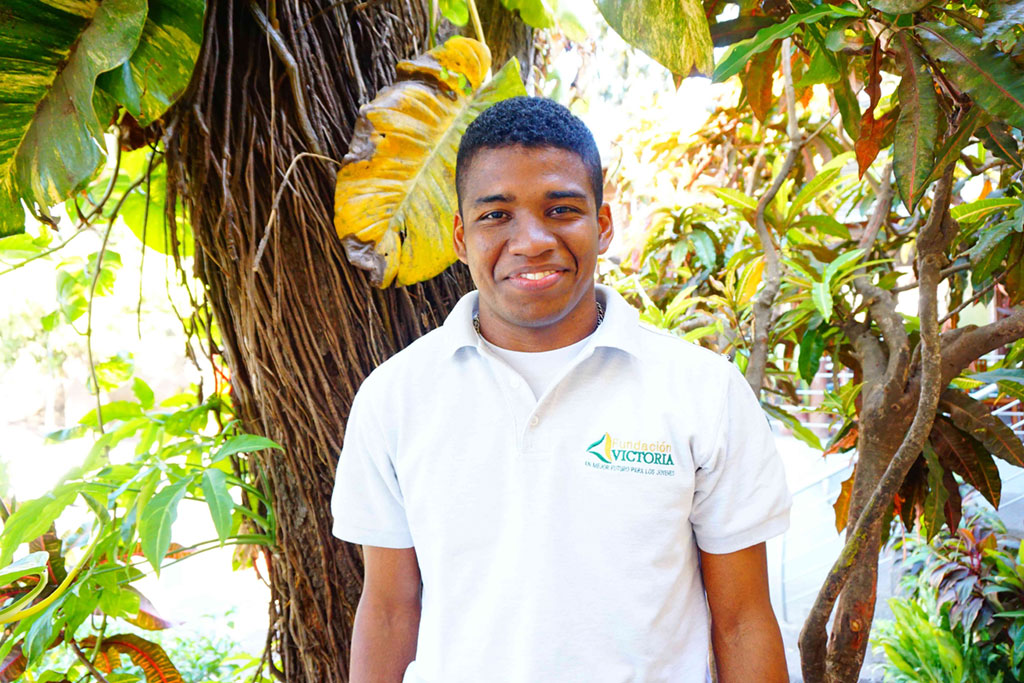
“Most of the indigenous people living in municipalities along the Caribbean Coast live in extreme poverty,” says Ray Hooker, Director of the Foundation for the Autonomy and Development of the Atlantic Coast of Nicaragua, a local organization in Bluefields that is partnering with Aprendo y Emprendo to reach at-risk youth.
Hooker, who has lived along the Caribbean Coast the majority of his life, has witnessed the challenges Nicaragua’s youth face today.
“Globalization demands quality education in order to get the appropriate training,” explains Hooker. “This is the existential challenge of the afro-descendant people of Bluefields: if they don’t get quality training in order to have a better job, their way of life is going to be destroyed.”
Harnessing the power of youth with improved access
Selected from a national applicant pool, Soza, Collins and Mendez are studying at the prestigious Fundacion Victoria, which has a job placement rate of 98 percent and a strong network of private sector employers throughout Nicaragua.
“Gaining this knowledge and this level of skill is not easy and so this will be smart for my professional development,” says Collins. “This kind of career has a huge impact on Nicaragua’s development.”
Youth in Central America need soft skills necessary to enter the formal labor market but lack the necessary technical and entrepreneurship skills, business networks and access to capital to be successful.
“Gaining this knowledge and this level of skill is not easy and so this will be smart for my professional development. This kind of career has a huge impact on Nicaragua’s development.” Igor Leonard Collins Sanchez
Along the Caribbean Coast, youth average less than three years of schooling. This not only creates an environment of youth with low levels of productivity and high unemployment, but it also limits overall economic development.
Aprendo y Emprendo is changing this narrative for the country’s youth.
Heyling del Carmen Alvarez Artol, Fundacion Victoria practicum coordinator, explains that Fundacion Victoria has the vision to reach every youth nationwide with technical education.
Historically, youth without access to financial resources have been left behind–especially for those located on the Caribbean Coast like Soza, Collins and Mendez. The center can only cover essential cost for teachers, equipment, infrastructure and security.
But with the project’s scholarship program, technical training at this prestigious institution is within reach of these youth.
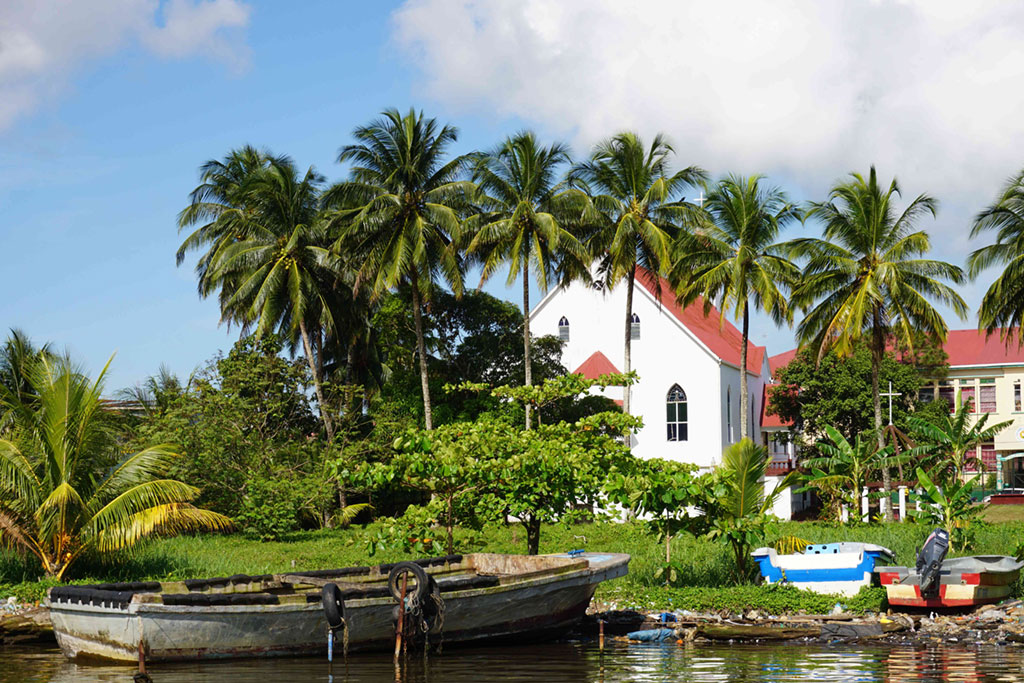
“This is the first time we have found an organization that has provided the necessary expenses to aid students from the Caribbean Coast to come and study at the center in Managua,” says Alvarez.
A model institution, Fundacion Victoria, is one of nine technical vocational education and training centers collaborating with Aprendo y Emprendo to provide certification, life skills and jobs for at-risk youth through scholarships and mentoring.
During its five years, the Aprendo y Emprendo expects to provide technical vocational education and training scholarships for 1,000 at-risk youth, including indigenous and afro-descendant youth like Diego, Igor and Osmin.
“We are now able to reach youth in the Caribbean Coast,” Alvarez adds. “This has always been our desire.”
Sparking success for a brighter future
Located on Bluefields Bay along the Atlantic, in the southern part of the country, is the largest and oldest coastal town in the country called Bluefields, where 24-year-old industrial electricity student Osmin Manuel Mendez and his family live.
Like many Caribbean coastal areas, jobs opportunities for ethnic communities in Bluefields revolve around water, with fishing boats unloading their daily catch and the occasional tourist making a short stop in town before boarding a boat and venturing off to the neighboring islands with their allure of pristine beaches.
Despite the viable industries of seafood and tourism, high unemployment for youth here remains an obstacle due to limited access to quality education, training and ultimately future job prospects.
With four months of training completed at Fundacion Victoria and 10 more months until graduation, Mendez has faced hurdles along the way.
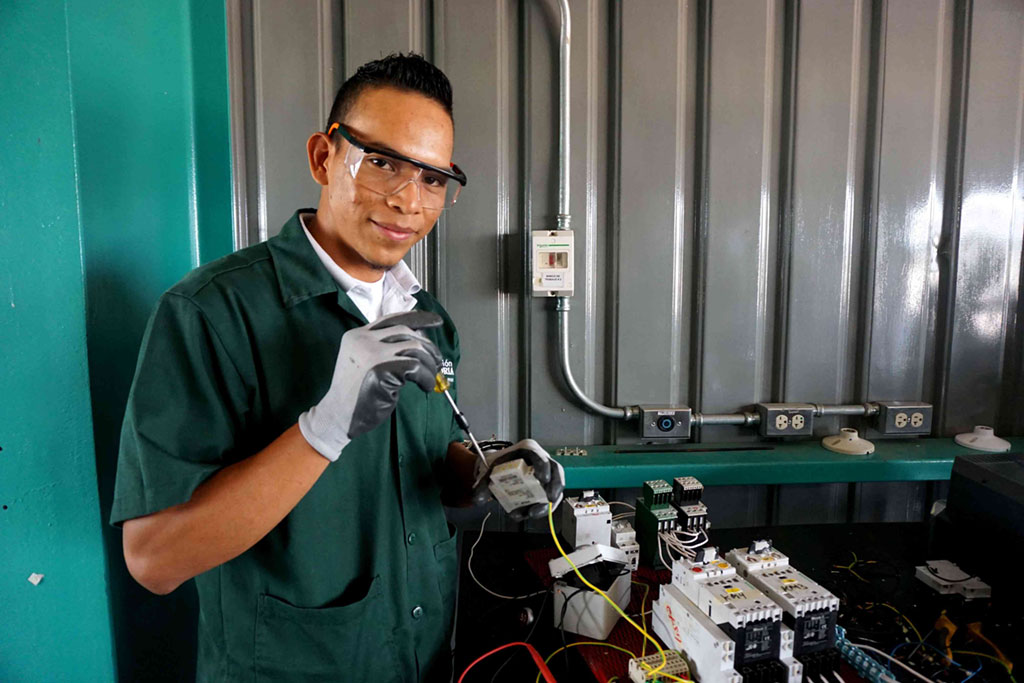
For Mendez, who is apart from his wife, Jackquelin, and their three-year-old daughter, what motivates him to stay focused and complete his industrial electricity training is the potential for a better life for his young family. His wife is currently unemployed and living with her parents, siblings and cousins in a small, one-bedroom house in Bluefields.
Alvarez, who has worked closely with the Caribbean Coast students to handle social emotional pressure, says, “Osmin has shared that he knows this could be the last chance in life to get an education, and I can see he has a clear vision on what he wants to achieve.”
“The training with Fundacion Victoria represents a chance for my daughter to improve her life, and I want to give her the opportunities that I didn’t have” Osmin Manuel Mendez
Every two weeks, Fundacion Victoria hosts personal development workshops for students to express their feelings and concerns, explains Alvarez. In these sessions, she observes the class dynamics and will follow-up with psychosocial support when needed.
“Youth need to be heard. I have the opportunity to listen to them and hear what’s going on in their lives,” says Alvarez. “I can make short and frequent interventions with each of them and see how each of them has grown through the process.”
The youngest of three brother and two sisters, Mendez and his siblings were taught to support their family.
“My mother has been the base of my family,” he says. “Since a very young age, my mom raised us to work hard and put our family first.”
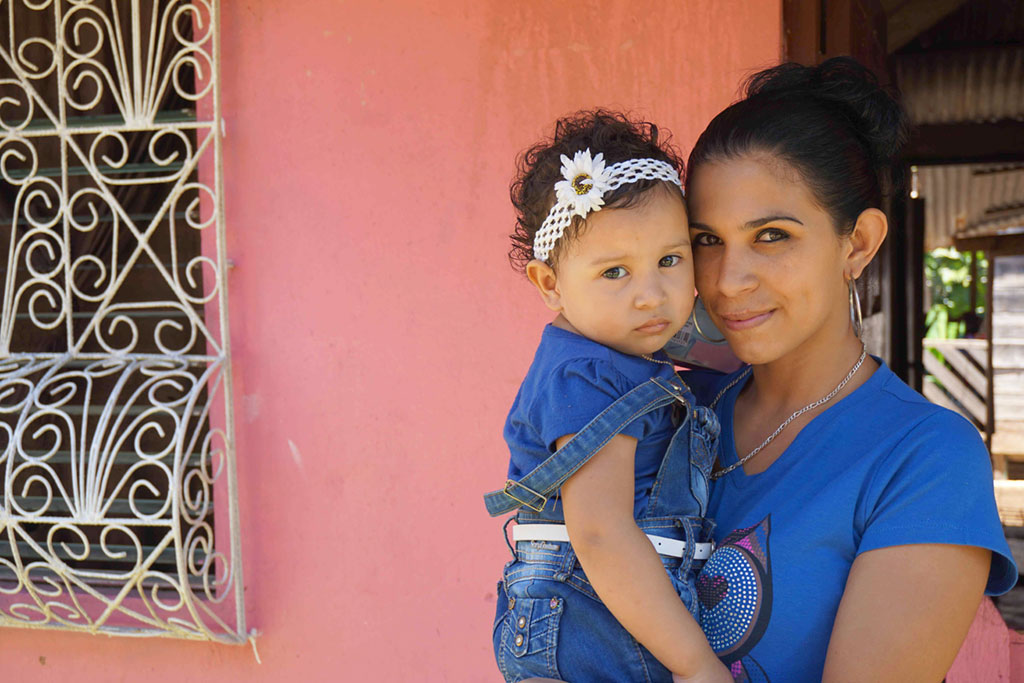
Now as a husband and father who is responsible for his own family, Mendez is breaking the cycle out of poverty and working toward a promising career path and investing in his future by leveraging the technical and entrepreneurship training.
After completing the training in Managua, he plans to return to the Caribbean Coast and start his own industrial electricity enterprise. Currently, there is only one electricity provider in Bluefields.
“The training with Fundacion Victoria represents a chance for my daughter to improve her life, and I want to give her the opportunities that I didn’t have,” he says. “I am looking forward to giving my daughter a legacy and for her to say she is proud of her father.”
With reporting by Gretchen Robleto.
